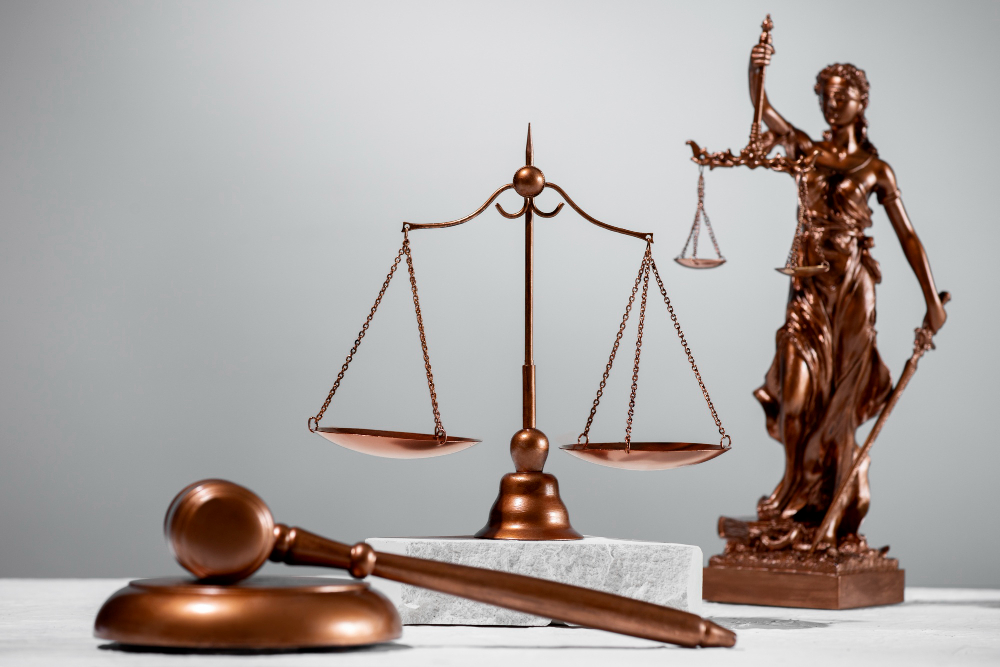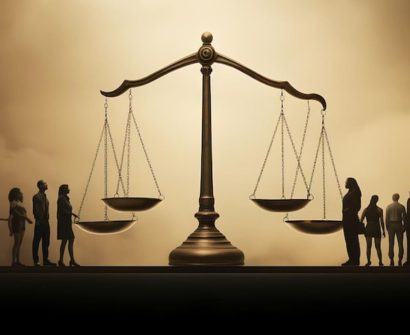
The implementation of justice needs to be tempered by discretion and sympathy in a country wherein the rule of law is in existence. The discretion of Presidential Clemency, which is protected by Article 72 of the Constitution, is one of the most significant tools in the Indian legal system for implementing this concept.
article 72 of indian constitution
This article 72 discusses the President’s authority to pardon, etc., and to suspend, remit, or commute penalties under specific circumstances. It says that:
- The President may pardon, reprieve, respite, or remit punishment; or he may suspend, remit, or commute the sentence of any individual found guilty of any crime.
- In every situation when a court martial is used to impose a sentence or punishment.
- In any situation in which the penalty or sentence relates to an offense against any law pertaining to a subject over which the Union’s executive authority extends.
- In every situation in which the punishment carries a death sentence or capital punishment.
- The provisions mentioned in subclause (a) of Clause (1) will impact the Governor of a State’s ability to suspend, remit, or commute a death sentence under any currently enacted statute.
- article 72 of indian constitution and Article 161 of the Indian Constitution respectively bestowed authority to the President of India and the Governors of the States.
- An act of benevolence, mercy, or forgiveness is called a pardon.
- The idea of a pardon is a holdover from a bygone era in which an all-powerful king had the authority to inflict or absolve any punishment.
- In India, the Constitutional framework includes the pardoning authority.
- The purpose of the pardon power is to stop injustice, whether it comes from severe, unfair laws or decisions that lead to injustice. For this reason, it has always been acknowledged that the pardon power must be vested in an entity other than the judiciary.
article 72 of indian constitution: Advantages of the President’s Pardoning Authority
The following are some benefits of granting the President’s pardon:
- If justice was not done to an innocent person, he may be spared from the penalty.
- Mistakes or errors might be fixed during the legal process.
- to postpone a penalty if the president deems it to be excessively severe.
pardoning power of president
According to Article 72, the President may pardon, reprieve, respite, or remit the penalty, as well as suspend, remit, or commute the sentence of any individual found guilty of any crime. These terms have the following meanings:
- A pardon eliminates the conviction as well as the penalty, completely relieving the convicted party of all fines, restrictions, and sentences.
- Commutation is the term used to describe the replacement of a harsh punishment with a less severe one. For example, a rigorous jail sentence could be substituted for the death penalty.
- Remission means shortening the sentence’s duration without altering its meaning. For instance, a five-year sentence to hard imprisonment may be reduced to one year of harsh imprisonment.
- When a sentence is reduced from what was originally given due to a specific circumstance, such as a convict’s physical disability or a woman offender’s pregnancy, it is referred to as respite.
- Reprieve refers to a brief halt in the execution of a sentence, particularly one that carries the death penalty. Its purpose is to provide the perpetrator adequate time to request a commutation or pardon from the President.
presidential pardon: Case Rulings
- The Supreme Court declared in Maru Ram v Union of India that the exercise of public power cannot be done arbitrarily and that the pardon, commutation, and release powers granted by Article 72 of the COI must be used intelligently and steadily.
- The Supreme Court noted in Kehar Singh v Union of India that the question of the President’s authority under Article 72 is one that belongs in the judicial sphere and can be investigated by the Court through judicial review.
The main focus of Article 72 is the control of the presidential prerogative and the individual’s mercy powers. Article 72 was added as part of the Indian constitution’s updating and modification to enable modernization and just administration of justice. In order to access and supervise any court error in the Indian constitution, the presidential pardon power was included. It should be noted that there are restrictions on the president’s authority, and the current legislation applies to convictions that result in the death penalty.
Article 72 of Indian Constitution FAQs
- Which President is used in article 72?
The President may pardon anyone who has been tried and found guilty of any crime under Article 72 of the Constitution in any situation when the following applies: Punishment or sentence for an offense against a Union Law. A court-martial (military court) is in charge of sentence or punishment.
- What is the difference between respite and remission?
Remission reduces the length of a sentence without altering its meaning. A commutation results in a different sentence. A shorter phrase is given during respite. The sentence is temporarily halted during a reprieve.
- Is Article 72 under judicial review?
There is a limited judicial review process available for the authority used in accordance with Article 72/161 of the Constitution. This power of clemency should only be used sparingly and in suitable situations that, although lessening the punishment imposed, do not in any way overturn the conviction.
- Can a governor commute a death sentence?
The governor of a state may, by order, commute the punishment or sentence of an individual who has been found guilty of a crime under state law. A state’s governor may also choose to commute a death sentence.
- What does Article 72 deal with?
Article 72 of the Indian Constitution addresses the President of India’s pardoning authority. The President of India uses his pardoning authority to act in cases involving punishment or sentences for those found guilty of crimes.
- What is the difference between Article 72 and 161?
The President of India has the authority to pardon under Article 72 of the Indian Constitution. Additionally, the state governor is granted the same authority by Article 161. A pardon is a gesture of kindness or absolution. While pardoning authority is granted by both Articles, there are some distinctions between them.
- Can a Governor pardon death?
Article 72 of the Constitution grants the President the power to pardon, save, break, remit, cease, or commute a death sentence. On the other hand, the death penalty cannot be commuted by the governor using their pardoning power (Article 161 of the Indian Constitution).
- Which Online rjs coaching is best for RJS preparation?
The reputable Jaipur Online rjs coaching program “Jyoti Judiciary Coaching” aids students in getting ready for the RJS exam. A systematic approach to RJS test preparation is made possible by Jyoti Judiciary, the top offline and online RJS coaching program in Jaipur. Their curriculum has been carefully designed to cover all the subjects and courses required for passing the Rajasthan Judicial Service Examinations.
- Which coaching is best for judiciary?
The most effective judiciary coaching in Jaipur is provided by Jyoti Judiciary Coaching. The objective is to create a comfortable learning environment for the students. It makes the difficult task seem easy, which increases the likelihood of achieving the desired outcome. The objective at Jyoti Judiciary is to give students the best possible education possible. The Institute pledges to use every resource at its disposal to provide you with the finest preparation for the Judicial Services entrance examinations.
With the goal of giving students the best coaching available for law entrance exams including the CLAT, AILET, and various other numerous state judiciary exams, Jyoti Judiciary Coaching, India’s Finest educational Platform, was established. Come enrol now with Jyoti Judiciary!
For any latest news, legal topics, judiciary exams notifications, patterns, etc watch Jyoti Judiciary’s YouTube channel for legal videos for any updates at https://youtube.com/@jyotijudiciarycoaching4852?si=2cwubh9d2A9urwJf










